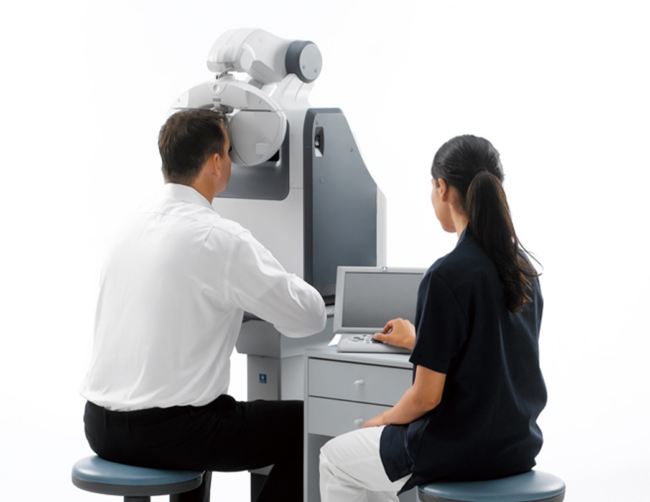Refraction
1 August 2025

Refraction is a fundamental process in eyecare, essential for diagnosing and correcting vision problems. It involves measuring how light bends as it passes through the eye’s cornea and lens to determine refractive errors such as myopia, hyperopia, astigmatism, and presbyopia
Importance of Refraction
It is crucial for several reasons:
- Accurate Vision Correction: By determining the precise refractive error, optometrists can prescribe the correct lenses, whether glasses or contact lenses, to improve vision clarity
- Early Detection of Eye Conditions: Regular tests can help detect early signs of eye conditions, allowing for timely intervention and treatment
- Preoperative and Postoperative Assessments: It is vital in assessing patients before and after refractive surgeries, such as LASIK, to ensure optimal outcomes
Techniques and Tools
There are two main types of refraction: subjective and objective.
- Subjective Refraction: This method relies on patient feedback to fine-tune lens prescriptions. The patient looks through a series of lenses and reports which ones provide the clearest vision
- Objective Refraction: This technique uses advanced instruments like autorefractors and retinoscopes to measure refractive errors without patient input. It is particularly useful for non-communicative patients, such as young children or individuals with disabilities
Impact on the Optical Industry
The process of refraction has a significant impact on the optical industry:
- Innovation in Diagnostic Tools: The development of sophisticated instruments like wavefront aberrometers and autorefractors has revolutionized the accuracy and efficiency of tests
- Growth in Eyewear Market: Accurate refraction leads to better vision correction solutions, driving demand for high-quality eyewear products
- Enhanced Patient Care: By providing precise measurements, refraction helps optometrists offer personalized and effective eyecare, improving patient satisfaction and outcomes
Future Trends
The optical industry continues to evolve with advancements in technology and research. Innovations in techniques and tools are expected to further enhance the accuracy of vision correction and the overall quality of eyecare.
In summary, refraction plays a pivotal role in the optical industry, from diagnosing vision problems to ensuring effective treatment and improving patient outcomes. As technology advances, the methods and tools will continue to evolve, offering even greater precision and benefits for eyecare professionals and patients alike.
Unsure where to start, visit our website and find out more about our refraction portfolio within our Consulting Room range